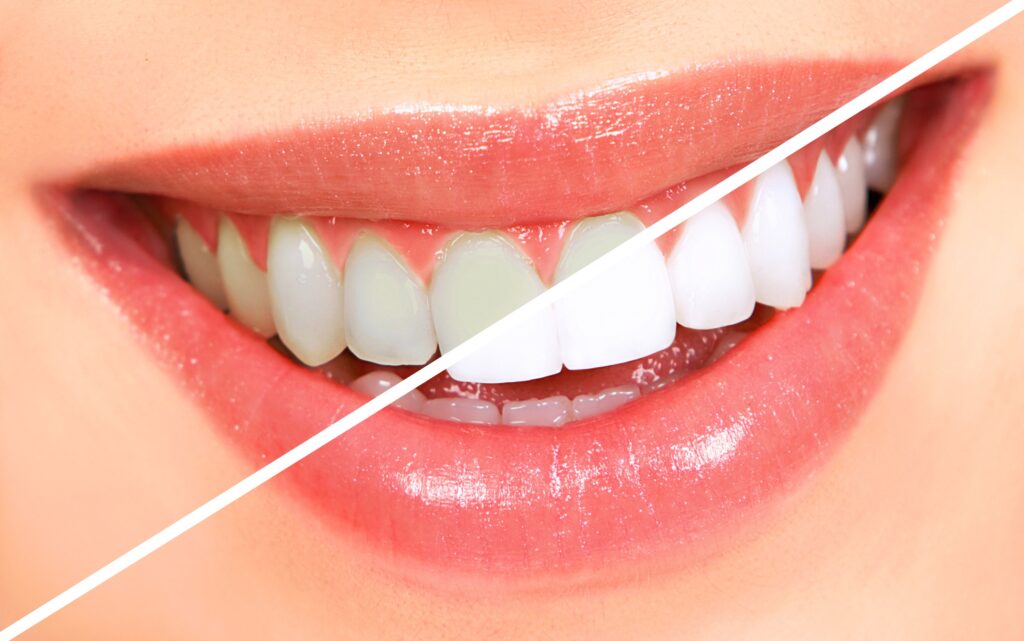
Teeth Whitening
Teeth whitening is a popular cosmetic dentistry procedure designed to brighten and enhance the appearance of discolored or stained teeth. Over time, various factors such as aging, consumption of certain foods and beverages, tobacco use, and poor oral hygiene can lead to the yellowing or discoloration of teeth. Teeth whitening treatments are effective in addressing these concerns, providing patients with a whiter and more radiant smile.
One common method of teeth whitening is in-office professional whitening. This involves the application of a high-concentration whitening gel to the teeth, which is activated by a special light or laser. The process is carefully monitored by a dentist to ensure safety and effectiveness. In-office whitening is known for producing dramatic results in a relatively short amount of time, making it a popular choice for those seeking immediate and noticeable improvements.
At-home teeth whitening options are also available, typically in the form of custom-fitted trays and whitening gels provided by a dentist. These trays are worn over the teeth for a specified period, allowing the whitening gel to break down stains and lighten the tooth enamel gradually. While at-home treatments may take longer to achieve desired results compared to in-office procedures, they offer the convenience of being performed in the comfort of one’s home.
Over-the-counter teeth whitening products, such as whitening toothpaste, strips, and gels, are widely available for those who prefer non-prescription options. While these products may provide some level of improvement, they generally contain lower concentrations of whitening agents compared to professional treatments. Consequently, the results may be more modest and take longer to become apparent.
It’s important to note that teeth whitening is not suitable for everyone, and individual results can vary. Pregnant or lactating women, individuals with sensitive teeth or gum issues, and those with certain dental restorations may need to consult with a dentist before undergoing whitening procedures.
Additionally, maintaining good oral hygiene practices and making lifestyle adjustments can help prolong the results of teeth whitening. Regular dental check-ups, brushing, flossing, and avoiding or minimizing the consumption of stain-inducing substances contribute to a healthier and brighter smile.
Teeth whitening is a safe and effective way to rejuvenate a smile, boost self-confidence, and improve overall appearance. Consulting with a dentist is crucial to determine the most suitable whitening option based on individual needs and to ensure a safe and successful outcome.

